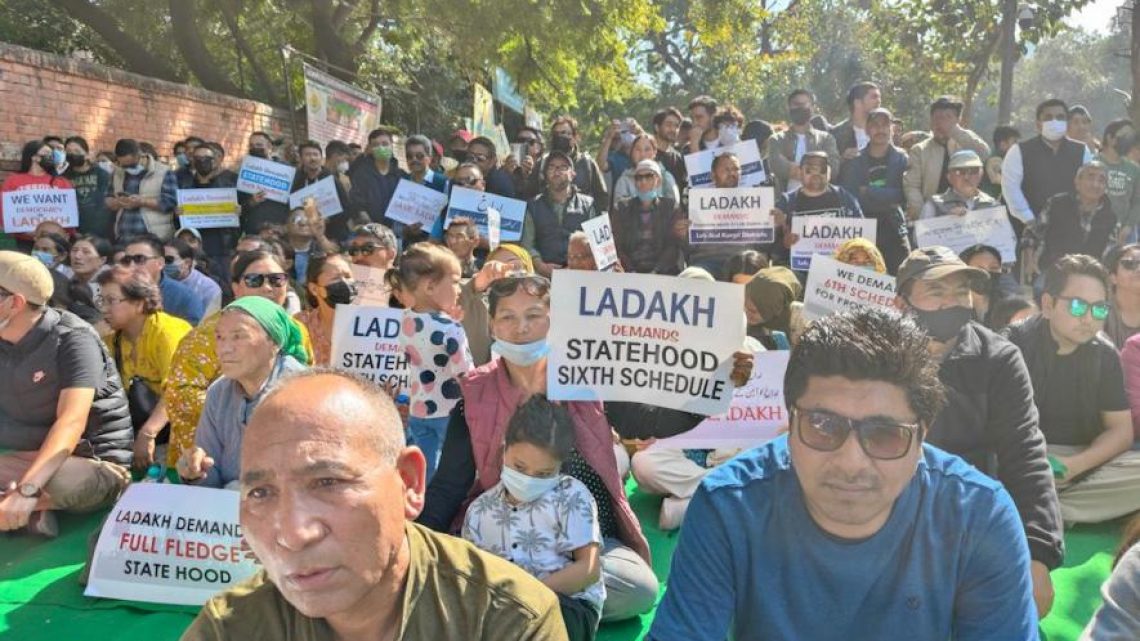
Ladakh’s Cry for Justice: A Hunger Strike Against Neglect Continues
October 19, 2024The indefinite hunger strike led by climate activist Sonam Wangchuk has now reached its 14th day at Ladakh Bhawan in Delhi. His determination, alongside his supporters, highlights the dire plight of Ladakhis under Indian rule.
Wangchuk and his group have protested since October 6, demanding justice for the people of Ladakh in Indian illegally occupied Jammu and Kashmir (IIOJK). They insist on a meeting with key BJP leaders, including Prime Minister Narendra Modi.
Their demands are critical: inclusion in the Sixth Schedule of the Constitution, statehood, a public service commission, and separate Lok Sabha seats for Leh and Kargil. These are not mere requests; they are fundamental rights that have been ignored for far too long.
In a show of solidarity, leaders from the All India Kisan Sabha (AIKS) joined the hunger strike. They condemned the colonial treatment of Ladakh, with bureaucrats imposing policies without understanding the ecological nuances of the region. Their support amplifies the urgent need for justice.
The AIKS issued a statement denouncing the BJP’s centralized power structure. They highlighted how this governance model undermines India’s federal principles and has led to widespread protests in Ladakh. The message is clear: the struggle for Ladakhi rights is a fight for democracy itself.
As this movement gains traction, misinformation poses a significant threat. Wangchuk has expressed alarm over the spread of false narratives on social media aimed at undermining their efforts. He called for law enforcement to crack down on these disruptive tactics.
“It’s disheartening to see some resort to such tactics for financial gain,” Wangchuk remarked, underscoring the malicious intent behind the misinformation. This underscores the desperation of the ruling regime to maintain control, even at the expense of truth.
Wangchuk criticized the BJP for abandoning its promises made upon taking power. The assurances of Sixth Schedule status and rights to land and jobs for Ladakhis are now hollow words. The ruling party has shown a shocking disregard for its commitments, further alienating the local populace.
The situation in Ladakh is a clear reminder of the consequences of broken promises and authoritarian governance. The people of Ladakh deserve better than to be treated as second-class citizens in their own land.
This hunger strike is not just about individual rights; it symbolizes a broader struggle against oppression. As the situation escalates, it becomes increasingly vital for the Indian government to listen.
The ongoing hunger strike reflects the deep-rooted frustrations of a marginalized population. If the Modi government continues to ignore the cries for justice, it risks igniting an even fiercer backlash.
The plight of Ladakhis demands immediate attention. The hunger strike led by Sonam Wangchuk serves as a powerful call to action, and it’s time to stand up for the rights of the people of Ladakh.

